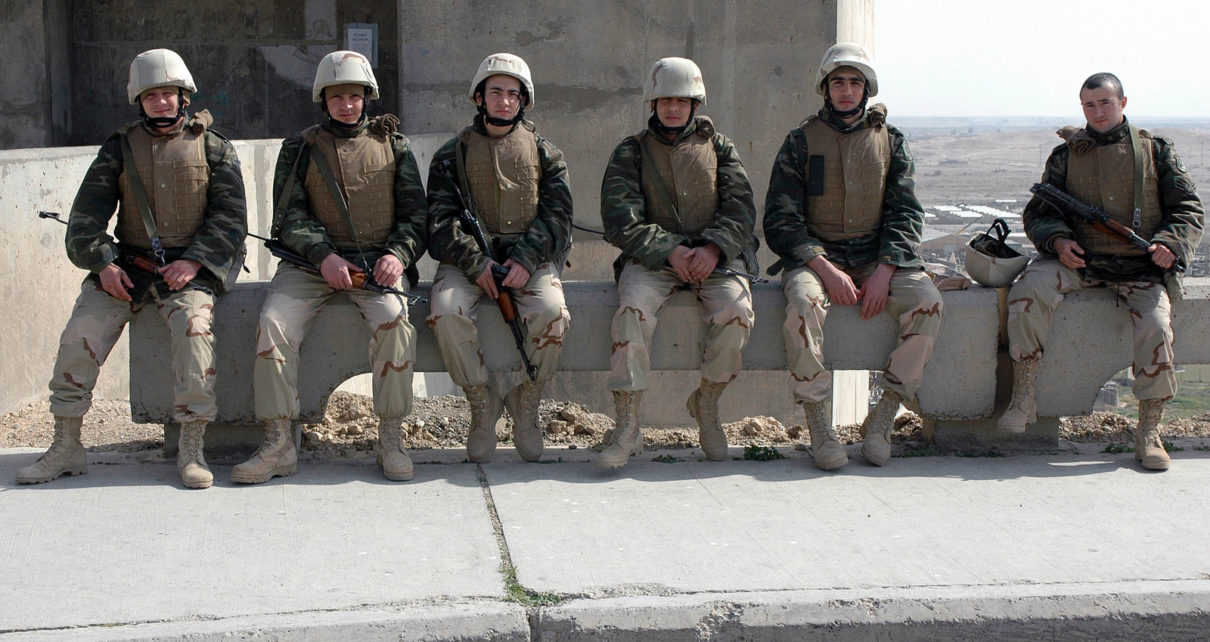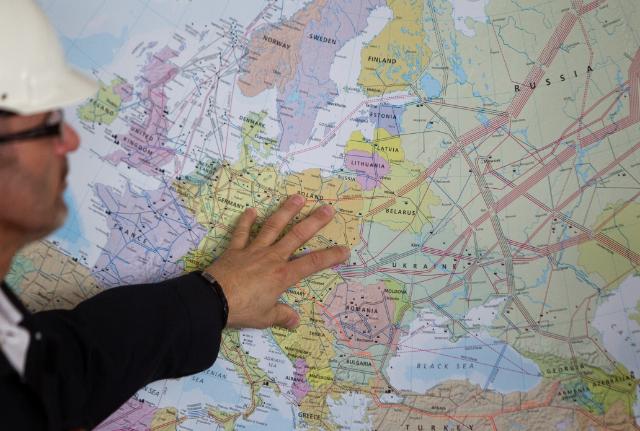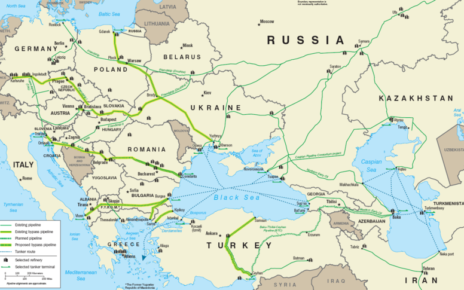Earlier this summer, on 5 July 2023, NATO’s Military Committee convened a meeting with select partners to discuss energy security, its challenges, and areas that could benefit from enhanced military cooperation. The gathering marked the second in a thematic series.
Azerbaijan was, for the first time, a special guest. Participants from the country highlighted Azerbaijan’s endeavours to diversify natural gas sources and routes and their plans to export electricity generated from wind and solar technologies. Dr. Esmira Jafarova, from the Center for Analysis of International Relations in Baku, discussed the nation’s energy security strategy in detail. The Military Representative for Azerbaijan, Colonel Aghaverdi Guliyev, also participated.
The Committee’s deputy chair, U.S. Air Force Lieutenant General Lance Landrum, introduced the session with an emphasis on addressing common challenges, the significance of partnerships that form the bedrock of cooperative security, and the need to continue fostering robust communication and collaboration. These activities help NATO to shape the strategic and global environment, ensuring its members’ security and the preservation of their values.
Colonel Darius Uzkuraitis, who directs the NATO Energy Security Centre of Excellence, based in Vilnius in his home country Lithuania, briefed the Committee on the Centre’s role in supporting NATO and Partner Nations. He stressed that energy security encompasses a range of considerations that span across NATO’s core tasks. Nations, he noted, must bolster their resilience, especially concerning critical infrastructure and energy security.
Azerbaijan’s reputation in the field of energy security is assured both by its development of the “Contract of the Century” for oil from the Azeri–Chirag–Gunashli offshore deposit that first unlocked Caspian Sea energy for the world market. The Baku–Tbilisi–Ceyhan (BTC) oil export pipeline continues to function.
It is no exaggeration to say that this project—the first in the world industry to include a producing country (Azerbaijan), a different transit country (Georgia), and a still different exporting country (Turkey)—became the model of the complex development of the industry in the twenty-first century. The BTC project innovated not only new forms of cooperation among the companies, notably the “strategic alliance” going beyond goal-limited joint ventures, but also new forms of multilateral diplomatic cooperation directed by the applied policy concept of “co-operative energy security”.
Azerbaijan’s reputation in the global energy sector was secured not just by the BTC pipeline but also by virtue of its having been the driving force behind the construction of the Trans-Anatolian National Gas Pipeline (TANAP) pipeline across Turkey. The TANAP pipeline is the SGC’s essential segment, and the Azerbaijani state company SOCAR remains its majority owner and operator.
As I have explained elsewhere, Azerbaijan will soon be supplying gas not only to Southern Europe but also to Bulgaria, Hungary, Romania, and Slovakia through “reverse flow” of the Trans-Balkan Pipeline (TBP). Azerbaijan will also help Albania to build out its gas distribution system since the country’s Soviet inheritance includes no such infrastructure. Albania will then be able to off-take gas from the Trans-Adriatic Pipeline (TAP, another SGC segment), which passes through the country.
The SGC spans over 3,500 kilometres, connecting Azerbaijan to Europe and transporting gas from the Caspian Sea to European markets. The strategic value of this project is today unquestionable. Europe’s lethargy in seeking to realize the full-fledged Trans-Caspian Gas Pipeline has limited the volumes that can be transmitted, but Azerbaijan has been a reliable supplier. It continues to ensure a steady flow of energy through the corridor from its offshore Shah Deniz deposit, reducing Europe’s dependence on other sources of energy.
Azerbaijan’s cooperation with NATO is not limited to energy security. Over the years, the nation has been an active participant in various NATO initiatives. For example, it has participated in the Partnership for Peace (PfP) program since 1994.
It is this partnership that paved the way for Azerbaijan to participate in high-level NATO meetings such as the one in June, as well as facilitating military cooperation and defence reforms. Azerbaijan was also instrumental in providing logistical support to NATO’s mission in Afghanistan, facilitating supplies through the Northern Distribution Network and contributing its servicemen to NATO operations not just in Afghanistan but also in Iraq and Kosovo.
Azerbaijani soldiers are today also serving in the UN Mission in South Sudan. This activity suggests how, over the past 10-15 years, Azerbaijan has elevated its diplomatic profile and prestige on the global stage, to the point where scholars argue that it has, like Canada, become a “middle power”.
Azerbaijan’s reliability in energy supply, its strategic geopolitical position in the South Caucasus (sharing borders with Iran, Russia, and Turkey), and its active role in regional and international organizations all have solidified this reputation.
Furthermore, Azerbaijan’s strategic geopolitical position, between Europe and Asia and bordering the Caspian Sea, has made it a sought-after partner for many nations. Its location at the crossroads of major trade and transport routes has made it a pivotal player in initiatives like the Middle Corridor and the Trans-Caspian International Transport Route. In conclusion, Azerbaijan’s engagement with NATO, especially in the realm of energy security, underscores its strategic importance in the region.
Photo: ‘Azerbaijani peacekeepers, securing the Haditha Dam.’ by U.S. Army photo by Staff Sgt. Tyrone C. Marshall Jr., Task Force Lightning Public Affairs. Licensed from Wikimedia Commons under Public Domain Mark.
Disclaimer: Any views or opinions expressed in articles are solely those of the authors and do not necessarily represent the views of the NATO Association of Canada.




